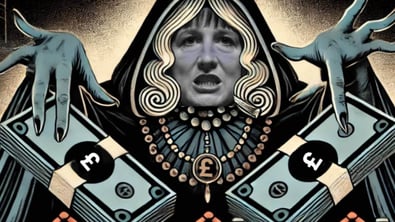Demand for houses is up 40% on the five-year average as property prices continue to rise.
According to a report by Zoopla, average houses are up 8.4% on the year, taking the average value to £251,550.
In Wales, price growth is up 11.4% on the year.
What is happening in the housing market and what is causing the current growth? This blog post explains.
What was the growth in house prices in May 2022?
Average house prices are up 8.4% on the year with a 0.1% house price growth in May 2022.
Growth for the quarter is at 1.4%.
Wales registered the highest price growth with an income of 11.4% on the year. Average values in the country rose by an average of £32,000 over the last 24 months, taking average home values to £192,500.
In London, average prices rose by 3.9% in May on the year. This means that the average home value increased by almost £30,000 over the last 24 months to £516,100.
Nottingham has the highest price growth at 10.4% taking the average home value to £190,300. Second was Bournemouth at 10.2%.
Why are house prices high?
The current house price surge was created during the Covid pandemic, which included the stamp duty holiday and the new mortgage guarantee, as well as the ‘race for space’, which saw more people looking for bigger properties following the move to working from home.
Detached homes have increased by £68,000 since the start of the pandemic. This was a 22% rise as people working from home sought larger properties.
Demand is outstripping the number of homes for sale. It is more than double (+113%) the pre-pandemic five-year May average.
What will happen to house prices next?
The level of buyer demand in the market, while still high compared to the five-year average, is beginning to recede to more normal levels.
As the pressure on supply from buyer demand starts to ease, it will put a brake on the intense upwards pressure on pricing.
Another signal that the market may be slowing is the speed at which house sales are proceeding. The average time to sell (listing to sale agreed) is using – up to 22 days in May from 20 days in March.
The fastest-moving market is in the South West, with the average length of time taken between listings and agreeing a sale is less than three weeks (19 days). This reflects the surge in demand for properties in the South West since the start of the pandemic – as some buyers prioritised access to rural and coastal settings.
Homes in London are staying on the market the longest, with 35 days between the listing and sales agreed, although this is still a large reduction on the 5-year average of 50 days to agree a sale.
The average time taken from searching for a home to exchange, at which point buyers can move in, is now averaging around 170 days.
What role are mortgages playing in the current housing market?
Mortgages rates are rising as the cost of money increases, driven by increases to the Bank of England base rate.
While tracker mortgage rate and SVRs tend to move in line with the base rate, lenders have more control about how they price their fixed-rate loans, based on how much funding they have pre-secured at certain rates, and how competitive they want to be in the market.
Buyers are now facing average rates of 3.37% for a 5-year fixed rate loan, compared to 2.64% in December. This increases the annual cost of a loan for an average priced home (£250,000) with a 25% deposit and 25-year term by £870.
If interest rates continue to rise (as expected), then the costs of paying for a mortgage will also continue to climb, meaning that for those looking to move home, taking action sooner rather than later will be beneficial.
What are house prices expected to do in 2022?
House price annual growth is at its highest level since late-2007.
There are signs that the housing market is beginning to ease, although this will take time to be reflected in annual house price growth.
Buyer demand is starting to normalise from record peaks, although it is crucial to highlight that demand levels are more than 30% higher than the 5-year average.
The market is still moving very quickly, but the time between listing a home for sale and agreeing a sale are starting to increase; another signal that the market is moving back towards normal conditions.
The rate of price growth is expected to ease. The continuation of the trend will mean annual growth will reach 3% by the end of the year.
Why is now the best time to invest in property?
With property price growth slowing and demand for houses high, now is the best time to invest in property.
The rate of inflation is the property investors’ friend as it means the value of property increases at a far greater rate than using a traditional savings account.
To find out why now is the ideal time to invest watch this YouTube video or read this blog post.
Wealth Through Property can guide you through the essentials of getting started with property investment and current tried and tested strategies that are working.
Learn how to acquire and profit from property, obtain houses and apartments at below market value and profit from the deals you don’t do. Learn from Touchstone Education mentors and benefit from vast networking opportunities.
To find out more information about Wealth Through Property and the other courses we offer call us on 01302 897131 or email office@touchstoneeducation.co.uk.












